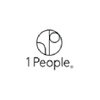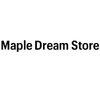
Maple Dream Store is where considerate craftsmanship and modern wholesale opportunity unite.
We are based in Vancouver, British Columbia, and our target retailers are those who appreciate qua...
Don John by Victoria Charles is a one-stop shop for handmade clothing and accessories for both men and women.
Our wide range of apparel for women consists of jeans, leather pants, dresses, go...
Don John Belt

1People

1 People is a Danish fashion brand that focuses on sustainable luxury. It was founded in 2012 by Jonathan and Rea Tjoa Algreen and is based in Copenhagen. The brand creates simple and timeless desi...
The clothing industry is a huge and ever-expanding market.
With a current global revenue of $1.53 trillion, it’s projected to grow to a staggering $2 trillion by 2027.
This means there’s a lot of money in this industry, but it also means there’s a lot of competition.
To stand out and succeed in this space, you need to stay informed about market trends and source high-quality products that match your customers’ preferences and expectations.
The Latest Trends in the Wholesale Clothing Industry (And How to Cash In On Them)
The wholesale clothing industry is always changing and evolving with new trends and customer preferences.
To stay on top of the game and meet the needs of your customers, you need to know what’s hot in the market right now.
And more importantly, how to cash in on it.
Some of these trends are:
- Sustainability: Customers care more about the environmental impact of their purchases. A McKinsey survey found that 67% of customers consider sustainability when buying clothes. You can appeal to this segment by offering clothes that are made from organic or recycled materials.
- Diversity: Customers want clothes that suit their diverse sizes, shapes, colors, and styles. They want clothes that reflect their individuality and identity. For example, two out of three US customers say their social values shape their shopping choices. You can capitalize on this trend by offering clothes that cater to different segments of customers.
These are just some of the hottest trends in the clothing industry right now. Of course, there may be other trends that are specific to your niche or market.
Next, let's discuss how you can select the right vendors to meet these market demands and set your business apart from competitors.
What You Need to Know Before Choosing a Wholesale Clothing Vendor
Before you pick a vendor for your clothing business, here are some factors to consider:
- Quality: How good are their products? Check the fabric, stitching, fit, durability, and appearance. Ask for samples or reviews. You don't want to sell products that are low-quality, uncomfortable, or unattractive.
- Reliability and Capacity: How much can they produce, and how fast can they deliver? You don't want vendors who run out of stock, miss deadlines, or send defective products. To avoid this, ask them about their production capacity, lead time, and quality control process.
- Prices and Terms: How much do they charge, and what are their conditions? Compare their prices with other clothing vendors and see if they offer discounts or incentives for bulk orders. Also, check their payment methods, shipping costs, return policies, and warranties.
- Customization Options (optional but valuable): Can they help you personalize your products? See if they offer services like embroidery or screen printing. Or see if they offer white-label products that you can brand as your own.
Don't just copy what everyone else is doing. Find out what your customers want and need, and offer them something better and different than your competitors. This is the key to a successful clothing business.
Now, let's address a question that many people ask regarding clothing business regulations.
How do I comply with labeling and advertising requirements for clothing products?
The US government has rules for how you label and advertise your clothing products.
The Federal Trade Commission (FTC) and the U.S. Customs and Border Protection (CPB) oversee these rules. You must follow them or else you can face lawsuits or fines. Here’s what you need to do:
- Label your products with the fiber content, country of origin, manufacturer identity, and care instructions.
- Be honest about your product’s features or benefits. Don’t make false or misleading claims about the material, quality, origin, or performance of your products.
- Be careful with “Made in the USA” claims. Only use them if you can prove that your product was made in the USA.
- Be fair and ethical in your marketing and merchandising strategies. Don’t use unfair or deceptive practices that can harm consumers or competitors.
Copyright 2026 Seebiz Inc. All rights reserved













